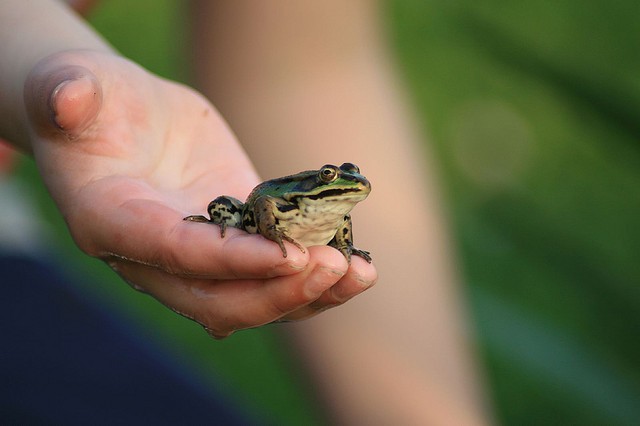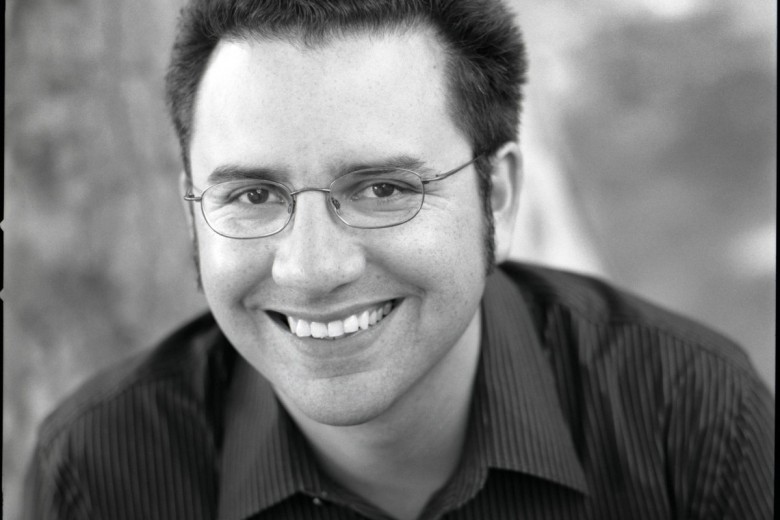
She was tiny and red. When She cried, her ugly, wrinkled face scrunched into an angry pucker in his mother’s hand. She squeaked when She moved, making little noises as She opened and closed her tiny fist. While his mother slept and sweated in the bed, David walked around his house. He counted steps. One. Two. Three. Four. Five. When he got to six, he sometimes forgot what number was next, but if he made his steps big enough he could get across the floor of their apartment without needing to remember seven. Three steps to the bed. Two steps from the end of the bed to the kitchen counter. One step from the counter to the fridge. Frigo. That was Spanish for fridge. His father taught him, sometimes, if he was home. His father was never home. One day, David would be like his father and go to San Pedro for work. San Pedro.
David knew that it meant Saint Peter. Sometimes when he was playing alone in the short, scorched grass behind the apartment, he would pretend that San Pedro was there. San Pedro looked a bit like David’s father. Big shoulders, and black curly hair. San Pedro had a tattoo of a dragon on his left arm and one of a skull on his back. He also had a dog on the back of his hand. David wanted a dog on the back of his hand.
You can just call me Pedro, said the Saint.
Pedro took David on walks down the heat-shimmering street, under humming power cords, through shouted conversations, and past overstuffed fruit stands decorated with bright plastic flowers. On days when the heavy heat lifted and the hot, rolling wind was still, they walked all the way to the trickling creek that ran beside the highway over the rocks and plastic bags. David wasn’t supposed to play there because of the cars, but Pedro said it was okay as long as they were careful. Pedro and David usually caught frogs down by the creek. They were easy to catch if you were quick. David was quick. David could run a whole block by the time Pedro counted to ten. He could also catch frogs.
Sometimes on the walk back, Pedro would help David sneak into Walmart and pretend he was looking for his mother among the glittering shelves. They would hide together in the back under a row of pillows until someone found them and they had to leave. Inside Walmart was cold and dark and quiet.
It was Pedro who taught David about the scorpions. David had found their holes a few times, but he had never discovered how to get them to come out. He knew they were scorpion holes because his mother had a faded recording from the nature channel about the animals that lived around San Antonio. Sometimes she would put it on instead of the Spanish channel they normally watched. On special occasions, she used to come out and show him the scorpion holes herself. She told him that scorpions could eat snakes and frogs and mice and sometimes people. His mother used to show him lots of things until the baby started to get big inside her. After that she only sat in the bed. She made the TV louder than usual. Sometimes it hurt his ears. He thought it might be better when She came out of his mother, but his mother stayed inside even more now. His mother told him the baby wasn’t eating properly and that’s why She cried so much. David and Pedro decided they would stop eating too. That would show her.
David thought about the baby. He knew She was why his mother never showed him scorpion holes any more. He told this to Pedro. Pedro had a plan. They would catch a scorpion and get it to kill the baby. Then his mother could get out of bed and they would show her the hole where they caught it. It was a good plan.
They needed bait and David thought of the frogs. His father always told him to be careful what he killed. That killing had consequences. When his father said that, he made a serious face and took David’s shoulders in his hands and David knew he was telling the truth. David had never killed anything before.
As he waded into the creek, he thought about his sister’s fist and how it clenched and unclenched. He knew that frogs always hid from the sun, so he searched for them under pieces of cardboard and inside rusting cans. He thought of her little red face as he felt inside an empty pizza box, and smiled when he felt movement. He closed it inside his hands and felt the frog wriggle helplessly, trying to get free.
David carried the frog up the side of the creek bed, stumbling once on the crumbling earth. Pedro pointed out a scorpion hole, and David crouched beside it. He wasn’t really sure what to do next. He shoved the frog inside the hole and stood back. As soon as he let go, it hopped out again. David caught it in his fist. He looked at Pedro.
Not like that, Pedro said. Scorpions are little. They can’t eat a whole frog. You have to just put part of it in.
David looked down at the creature in his hand. Its stomach went in and out. Its throat went up and down as it watched him. David thought of his mother. Hurry up, said Pedro. It’s gonna be dark soon. David took the frog’s leg between his fingers. He pulled. He lost his grip a few times on its slippery skin. He squeezed his fingers together harder. The frog struggled and twitched but David couldn’t pull hard enough. Finally he stuck both his index fingers inside its mouth and pulled. David felt like he was going to be sick, but he kept pulling until its eyes bugged out and it gave a final twitch and lay still. Some of its guts came out through its mouth.
Slowly, David put the frog on the ground. He started to cry. He had slime on his fingers. He wiped them on his pants. He crossed the street and headed home. He opened their door. He crawled into bed beside his mother. She didn’t look up. He followed her gaze to the small coloured screen and let the blaring Spanish wash over him.






